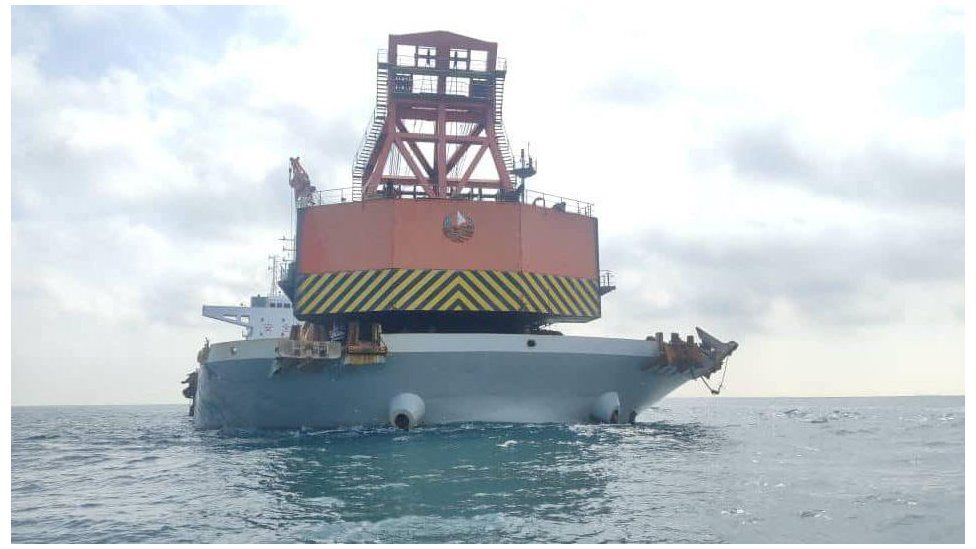ARTICLE AD BOX
 Image source, Malaysian Maritime Enforcement Agency
Image source, Malaysian Maritime Enforcement Agency
The China-registered bulk carrier detained for anchoring illegally in Malaysia's waters
By Hannah Ritchie
BBC News
Malaysia has detained a Chinese-registered vessel suspected of looting two British World War Two shipwrecks.
The bulk carrier was seized on Sunday for anchoring illegally at the site in the South China Sea.
Ammunition believed to be from the HMS Prince of Wales and HMS Repulse, which were sunk by Japanese forces more than 80 years ago, was then found on board.
The UK Ministry of Defence had earlier condemned the alleged raid as a "desecration" of maritime war graves.
For years the historic wrecks have been targeted by scavengers for scrap metal. Their resting site is on the bed of the South China Sea, some 100km (60 miles) off the east coast of Malaysia.
The Royal Navy battleships, dispatched to Singapore in WW2 to shore up the defence of Malaya, were sunk by Japanese torpedoes on 10 December 1941.
The strike - which occurred just three days after the attack on the US fleet in Pearl Harbour - killed some 842 sailors and is considered one of the worst disasters in British naval history.
Image source, BBC News
Image caption,The HMS Repulse was sunk by Japanese forces in 1941
Fishermen and divers first reported the presence of the foreign vessel to Malaysia authorities last month.
Local maritime police detained the Chinese ship on Sunday. The ship, registered in Fuzhou, had 32 crew on board, the Malaysian Maritime Enforcement Agency (MMEA) said in a statement.
Cannon shells "suspected to be from World War Two" were uncovered during a search of the vessel. Malaysian agencies are also investigating the provenance of the ammunition.
The MMEA added that it is linked to a cache of unexploded artillery, said to be from the two sunken vessels, that police seized from a private scrap yard in the southern state of Johor earlier this month.
In 2017, during a tour of Malaysia, a local diver showed the then Prince Charles images that documented damage to the HMS Prince of Wales inflicted by scavengers.
The Defence Secretary at the time responded by saying the UK would work with Malaysian and Indonesian governments to investigate claims that up to six British warships had been plundered in their waters.

 1 year ago
27
1 year ago
27








 English (US)
English (US)